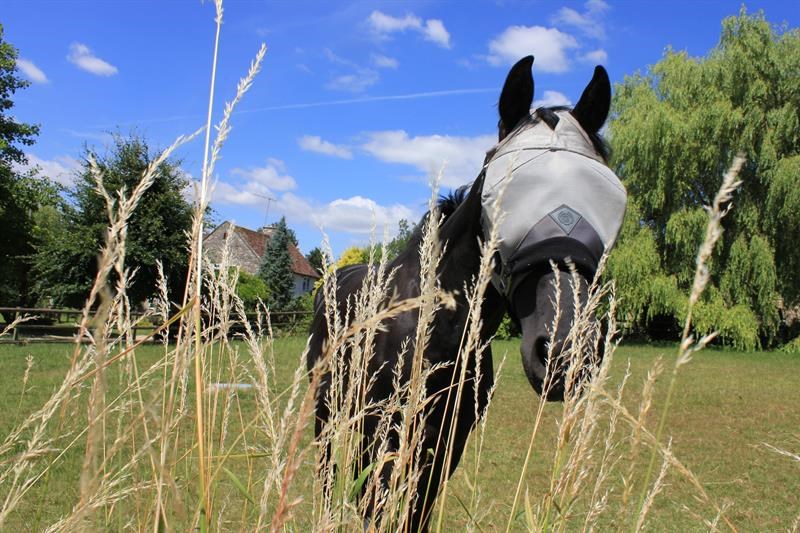While we all look forward to the prospect of long warm summer days and sunshine, for horses, it can lead to a range of ailments and conditions, not to mention the increase in biting insects. Rich Bristow BVet Med CertAVP MRCVS from Pinkham Equine Veterinary Services explains what to look out for and how best to prevent and manage your horses health in the summer months.
Sweet Itch
An allergic response to midge bites, that predominantly causes itching, hair loss and skin thickening along the mane and at the top of the tail. The best form of treatment is to prevent the midges being able to bite the horse by introducing certain management routines:
- -Use of a fly rug, including a section to go underneath the abdomen and cover the horse from ears to tail
- -If turned out then ideally place in an exposed field, away from standing water such as ditches or ponds and areas of rotting vegetation such as muck heaps, where midges breed. Midges are weak fliers, so will struggle to bother horses in open fields.
- -Make sure you regularly clean out drinking troughs
- -Stable horses at dawn and dusk – the times of peak midge activity
- -Place an electric fan in the corner of you stable (out of reach!) to generate a breeze within the stable. Insect-proofing your stable by the application of fine mesh over the doors and windows will prevent midge access.
- -Use of an effective fly repellent, particularly those containing Pyrethrin. Apply with care, and avoid using on damaged or broken skin.
The feature also looks at a wide range of ailments and conditions including sarcoids, wounds/abrasions, dermatitis and Urticaria.
You can read the full article in the next issue - to purchase a copy contact our Subscriptions Team on: 01722 716997
